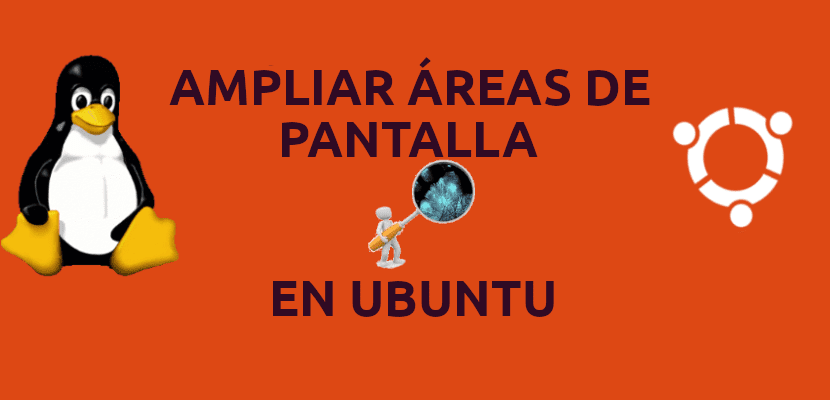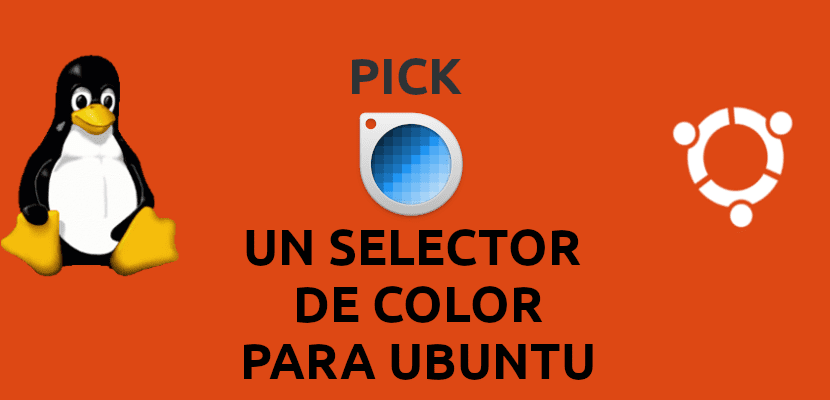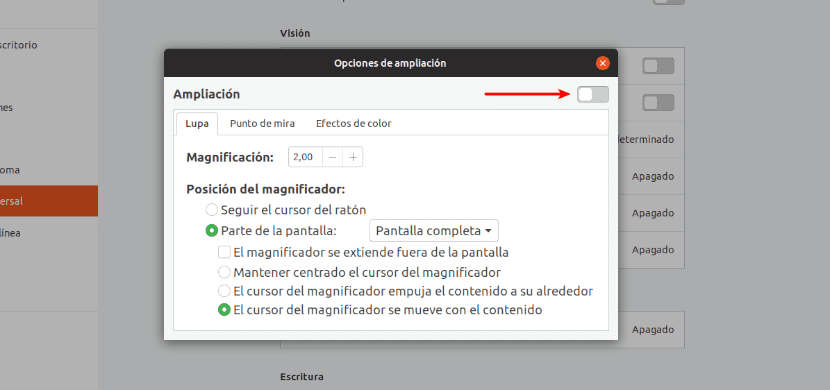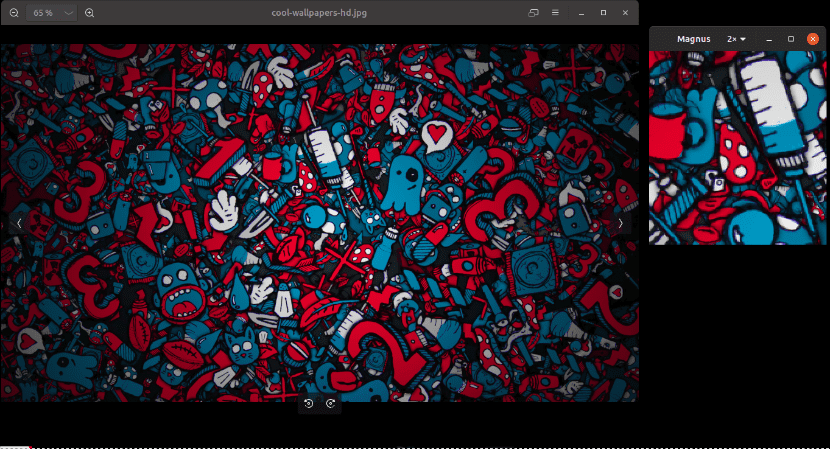
In the next article we are going to take a look at how we can enlarge an area of our screen on the Ubuntu desktop. In Gnu / Linux, fortunately we can find many applications available to enlarge areas of the screen, at the user's choice. Magnifying glasses can help artists or graphic designers to make a precise design or work in detail. This can also help those who have poor eyesight or a low-resolution screen monitor in general.
It must be said that when we talk about enlarging an area of the screen, we are not talking about enlarging a text. When we refer to enlargement, we are referring to the process of enlarge something only in appearance, not in physical size.
Expand screen areas on the Ubuntu desktop
As we say, we can find several ways or applications to do this. Next we are going to see two methods with which we can obtain the desired results.

Using the Universal Access menu
If you're GNOME user, you don't need to install any external application. This desktop offers us a built-in function called “Universal Access”, Which will provide us with many accessibility functions such as:
- Official documentation for expanding screen areas.
- Braille reading screen.
- Change text size.
- Adjust contrast.
- Use on-screen keyboard.
- And many others that can be consulted in the gnome.org page.
To make use of the function we are looking for in this article, we are going to see how to use the magnification of areas of the screen. To start we will launch universal access menu. It is usually found in the System settings.
Here we will find many accessibility options. All of them available in the universal access menu. To enable screen magnification we will have to click on the option "Expansion".

In the expansion options window, we will only have to enable Zoom option by clicking ON / OFF slider button to enable / disable this option.

Once we have the zoom option enabled, the areas of the screen will simply be enlarged when we move the mouse pointer over them. We will be able increase or decrease the zoom level by clicking the + / - buttons that we will find in the options window.
Use Magnus
Magnus is a magnifying glass app for desktop which is small and very simple for Gnu / Linux. It literally follows the mouse cursor, which will allow us to move by zooming in on parts of the screen. It will show us the areas of the screen around the mouse pointer in a separate window, magnified up to five times. Magnus is a free, open source application released under the MIT license. Can check your source code in the corresponding GitHub page.
Install Magnus
Magnus is available as snap app. So we can install it on distributions that support snaps using in the terminal (Ctrl + Alt + T) the command:
sudo snap install magnus
As well there is a PPA for Magnus available. To use it, in the terminal (Ctrl + Alt + T) you will have to type the following commands:

sudo add-apt-repository ppa:flexiondotorg/magnus sudo apt update && sudo apt install magnus
Once we have Magnus installed, we can launch it from the menu or application launcher.

When launching the program, we will see a small window appear. We can move it to any side of the screen and increase its size simply by dragging the windows from the corners.

Now, we can move the mouse pointer through the areas of the screen that we want to enlarge.
We can increase the zoom level (2x, 3x, 4x and 5x) from the drop-down box in the application toolbar Magnus. By default, Magnus will magnify the areas by a size of 2x.
Both options that we have seen, I have tested them on the Ubuntu 18.04 desktop and was able to easily enlarge the areas of the screen. With these two possibilities we can expand a screen area in Gnu / Linux in a simple way.